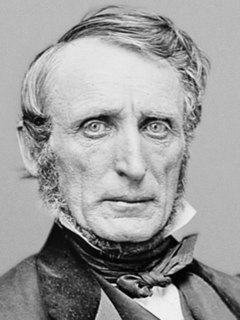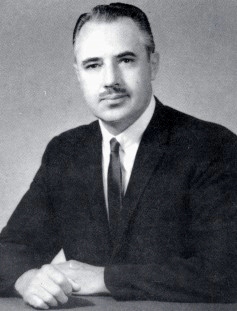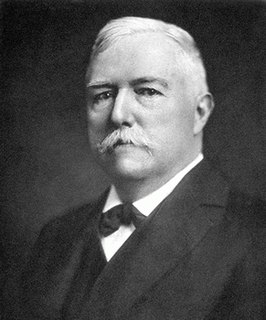Top 261 Continents Quotes & Sayings - Page 5
Explore popular Continents quotes.
Last updated on November 18, 2024.
The sea erupted. Often the sea and land changed places. The immobility of contours of continents and seas, a dogma in geology, has no basis in fact. And immediately there is the problem of the climate. There were ancient climates that were very different from what they are today. If those corals grew where they were found, certainly the Earth was not travelling with the same elements of rotation and revolution which means not in the same orbit, not with the axis directed in the same position as it is today. If you don't believe it, try to conservate corals on the North Pole.
In my early teens, I read every bound volume of the magazine Punch. Every writer of any distinction in the English language, and I mean including America and England, at some time wrote for Punch. Jerome K. Jerome, who wrote Three Men In A Boat, I loved. I was very impressed when I read a piece by Mark Twain in Punch, and realized that despite the fact that they were on different continents, Jerome K. Jerome and Mark Twain had the same kind of laconic, laid-back, "The human race is damn stupid, but quite interesting" attitude. They were almost talking with the same voice.
It's only when movement becomes the most natural state in our lives that we can finally begin to enjoy the motion. And it's only when standing still becomes impossible that we can finally embrace the kinds of changes that are inevitable in our lives.
We were not designed to stand still. If we were, we'd have at least three legs. We were designed to move. Our bodies are bodies that have walked across vast continents. Our bodies are bodies that have carried objects of art and war over great distances. We are no less mobile than our ancestors. We are athletes. We are warriors. We are human.
Canada is the linchpin of the English-speaking world. Canada, with those relations of friendly, affectionate intimacy with the United States on the one hand and with her unswerving fidelity to the British Commonwealth and the Motherland on the other, is the link which joins together these great branches of the human family, a link which, spanning the oceans, brings the continents into their true relation and will prevent in future generations any growth of division between the proud and the happy nations of Europe and the great countries which have come into existence in the New World.
America is a large country and its people have so far not shown much interest in great international problems, among which the problem of disarmament occupies first place today. This must be changed, if only in America's own interest. The last war has shown that there are no longer any barriers between the continents and that the destinies of all countries are closely interwoven. The people of this country must realize that they have a great responsibility in the sphere of international politics. The part of passive spectator is unworthy of this country and is bound in the end to lead to disaster all round.
I meditate, and when I do, Prince Harry appears in my subconscious and meditates with me. It's a little strange but I don't think there's anything I can do about it. Sometimes he's not the only one; the other day it was me, Prince Harry, the Dalai Lama, Mr. Rogers, Coco the gorilla, and George Clooney. We were all floating above the earth looking down at the continents as they passed. George Clooney suggested I visit Providence, Rhode Island. The Dalai Lama sighed deeply and said he'd like to visit Tibet. Poor Dalai Lama.
Reading, therefore, is a co-production between writer and reader. The simplicity of this tool is astounding. So little, yet out of it whole worlds, eras, characters, continents, people never encountered before, people you wouldn’t care to sit next to in a train, people that don’t exist, places you’ve never visited, enigmatic fates, all come to life in the mind, painted into existence by the reader’s creative powers. In this way the creativity of the writer calls up the creativity of the reader. Reading is never passive.
Absence does not so much make the heart grow fonder as give the heart time to integrate what it has not previously absorbed, time to make sense of what happened too quickly to have any meaning in the instant. This is always true. If it is in absence that people forget each other, it is also in the quiet pause of absence that, minds running in symmetry, people come to know each other; there is sometimes as much intimacy in the span of continents as in the shared hours before dawn.
It has been the White Race who has been the world builder, the maker of cities and commerce and continents. It is the White Man who is the sole builder of civilizations. It was he who build the Egyptian civilization, the great unsurpassed Roman civilization, the Greek civilization of beauty and culture, and who, after having been dealt a serious blow by a new Semitic religion, wallowed through the Dark Ages, finally extricated himself, and then build the great European civilization.
Cocoa-buttered girls were stretched out on the public beach in apparently random alignments, but maybe if a weather satellite zoomed in on one of those bodies and then zoomed back out, the photos would show the curving beach itself was another woman, a fractal image made up of the particulate sunbathers. All the beaches pressed together might form female landmasses, female continents, female planets and galaxies. No wonder men felt tense.
It is well to fetter the wings of our fancy and restrain its flights. It is quite possible we may have formed entirely erroneous ideas of what we actually see. The greenish gray patches may not be seas at all, nor the ruddy continents, solid land. Neither may the obscuring patches be clouds of vapor. Man is too quick at forming conclusions. Let him but indistinctly see a thing, or even be undecided as to whether he does actually see it and he will then and there set himself to theorizing, and build immense castles of conjecture on a foundation, of whose existence he is by no means certain.
Shakespeare was an intellectual ocean, whose waves touched all the shores of thought; within which were all the tides and waves of destiny and will; over which swept all the storms of fate, ambition and revenge; upon which fell the gloom and darkness of despair and death and all the sunlight of content and love, and within which was the inverted sky lit with the eternal stars -- an intellectual ocean -- toward which all rivers ran, and from which now the isles and continents of thought receive their dew and rain.
Lawrence Hill, a cultural and spiritual descendant of West African griots, has used his vast storytelling talents to create an epic story that spans three continents. The Book of Negroes recites the pain, misery and liberation of one African woman, Aminata Diallo, who was stolen from her homeland and sold into American slavery. Through Aminata, Hill narrates the terrifying story of slavery and puts at the centre a female experience of the African Diaspora. I wept upon reading this story. The Book of Negroes is courageous, breathtaking, simply brilliant.
The American spring is like the country itself: abundant, rich, flowing over you like a full tide. ... Azaleas were suddenly ablaze. White dogwoods stood like brides in the wood - these trees of all colors were new to me; one does not meet them in Europe, and dogwood cannot even be transplanted to other continents. White and pink magnolias, yellowish rhododendrons, all of them lived happily side by side with our ordinary lilacs and lilies of the valley - the Russian symbols of spring.
To make a concrete response to the appeal of our brothers and sisters in humanity, we must come to grips with the first of these challenges: solidarity among generations, solidarity between countries and entire continents, so that all human beings may share more equitably in the riches of our planet. This is one of the essential services that people of good will must render to humanity. The earth, in fact, can produce enough to nourish all its inhabitants, on the condition that the rich countries do not keep for themselves what belongs to all.
The seasons, like greater tides, ebb and flow across the continents. Spring advances up the United States at the average rate of about fifteen miles a day. It ascends mountainsides at the rate of about a hundred feet a day. It sweeps ahead like a flood of water, racing down the long valleys, creeping up hillsides in a rising tide. Most of us, like the man who lives on the bank of a river and watches the stream flow by, see only one phase of the movement of spring. Each year the season advances toward us out of the south, sweeps around us, goes flooding away to the north.
They would always be a family, but if she'd learned anything in the past few weeks it was that a family wasn't a static thing. There were always changes going on. Like with continents, sometimes the changes were invisible and underground, and sometimes they were explosive and deadly. The trick was to keep your balance. You couldn't control the direction of your family any more than you could stop the continental shelf from breaking apart. All you could do was hold on for the ride.
I can't get used to the ease with which one covers the world today. It's no longer an effort--Pole--equator--oceans--continents--it's just a question of which way you point the nose of your plane. The pure joy of flight as an art has given way to the pure efficiency of flight as a science.... Science is insulating man from life -- separating his mind from his senses. The worst of it is that it soon anaesthetizes his senses so that he doesn't know what he's missing.
To disguise nothing, to conceal nothing, to write about those things that are closest to our pain, our happiness; to write about our sexual clumsiness, the agonies of Tantalus, the depth of our discouragement-what we glimpse in our dreams-our despair. To write about the foolish agonies of anxiety, the refreshment of our strength when these are ended; to write about our painful search for self, jeopardized by a stranger in the post office, a half-seen face in a train window, to write about the continents and populations of our dreams, about love and death, good and evil, the end of the world.
In American terms, the accomplishment of Genghis Khan might be understood if the United States, instead of being created by a group of educated merchants or wealthy planters, had been founded by one of its illiterate slaves, who, by sheer force of personality, charisma, and determination, liberated America from foreign rule, united the people, created an alphabet, wrote the constitution, established universal religious freedom, invented a new system of warfare, marched an army from Canada to Brazil, and opened roads of commerce in a free-trade zone that stretched across the continents.
You can live a lifetime and, at the end of it, know more about other people than you know about yourself. You learn to watch other people, but you never watch yourself because you strive against loneliness. If you read a book, or shuffle a deck of cards, or care for a dog, you are avoiding yourself. The abhorrence of loneliness is as natural as wanting to live at all. If it were otherwise, men would never have bothered to make an alphabet, nor to have fashioned words out of what were only animal sounds, nor to have crossed continents - each man to see what the other looked like.




















